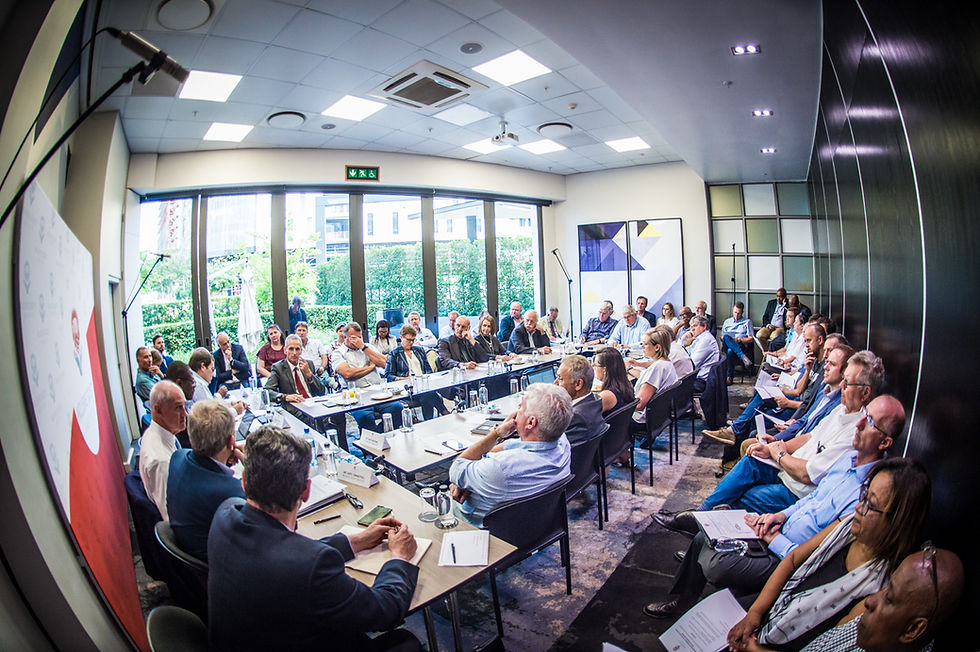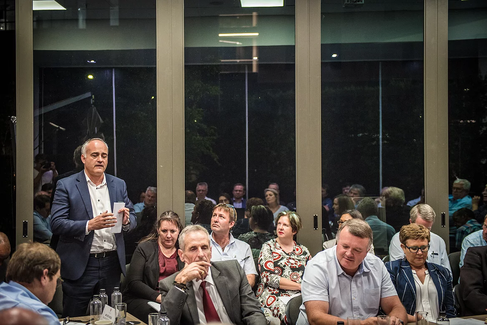
In a social cohesion roundtable meeting on the role and place of the Afrikaans-speaking community in South Africa, held on Tuesday, 18 February 2020 at the Capital Menlyn on Maine Hotel in Pretoria, the Inclusive Society Institute reconfirmed its commitment to implement a sustainable programme to keep social cohesion high on the agenda. As agreed at the Cape Town roundtable the previous week, this would include the design of an action plan aimed at marshalling the decisions taken in the programme onto the country’s policy-making agenda.
This roundtable, as at the Cape Town roundtable, was attended by a good cross-section of Afrikaans speakers drawn from business, government, the NGO sector, community representatives and academia. The keynote speakers included the Treasurer General of the African National Congress, Mr Paul Mashatile, who elaborated on the ruling parties philosophy, policy and history aimed at building a non-racial South Africa; and the well-known economist, Theo Vorster, CEO of Galileo Capital, did a presentation on the economic context of South Africa.
The discussion was facilitated by Roelf Meyer, a key architect in the drafting of the South African Constitution.
The discussion revealed more or less the same concerns that were raised at the Cape Town meeting, albeit that there was a greater discussion on the economy and its potential contribution to fostering social cohesion. Concerns included:
Developing a political culture of tolerance, with particular emphasis on ensuring that the narrative is conducive to reconciliation.
Reversing the inter-community trust deficit that has systematically developed post the Mandela-reconciliation era.
Guarding against stereotyping individuals on the basis of their community affiliation.
Developing activities that give greater inter-community exposure.
Designing public policies that crowd in the talents, skills, expertise and goodwill within the minority communities so as to enable their practical contribution towards building the South African economy and society.
The need for more inter-community dialogue.
The overriding message of the evening was ‘to get the economy right’. A growing economy would enable the government to deliver better services, create new jobs and economic opportunities that would expand the business base. Such an expansion would give natural momentum to the Black Economic Empowerment programmes of government.
This dialogue forms part of the Inclusive Society Institute’s broader programme aimed at fostering an inclusive progressive society.

Paul Mashatile, Treasurer General, ANC

Keith Khoza, Board Member, Inclusive Society Institute

Theo Vorster, CEO, Galileo Capital

Daryl Swanepoel, CEO, Inclusive Society Institute









Comments